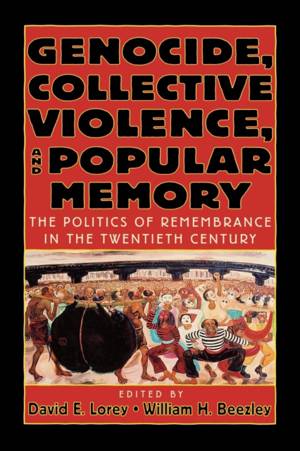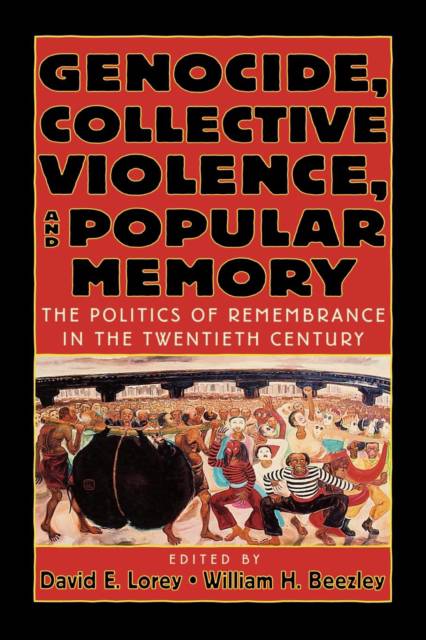
Vous voulez être sûr que vos cadeaux seront sous le sapin de Noël à temps? Nos magasins vous accueillent à bras ouverts. La plupart de nos magasins sont ouverts également les dimanches, vous pouvez vérifier les heures d'ouvertures sur notre site.
- Retrait gratuit dans votre magasin Club
- 7.000.000 titres dans notre catalogue
- Payer en toute sécurité
- Toujours un magasin près de chez vous
Vous voulez être sûr que vos cadeaux seront sous le sapin de Noël à temps? Nos magasins vous accueillent à bras ouverts. La plupart de nos magasins sont ouverts également les dimanches, vous pouvez vérifier les heures d'ouvertures sur notre site.
- Retrait gratuit dans votre magasin Club
- 7.000.0000 titres dans notre catalogue
- Payer en toute sécurité
- Toujours un magasin près de chez vous
Genocide, Collective Violence, and Popular Memory
The Politics of Remembrance in the Twentieth Century
David E Lorey, William H Beezley
88,45 €
+ 176 points
Format
Description
The twentieth century has been scarred by political violence and genocide, reaching its extreme in the Holocaust. Yet, at the same time, the century has been marked by a growing commitment to human rights. This volume highlights the importance of history-of socially processed memory-in resolving the wounds left by massive state-sponsored political violence and in preventing future episodes of violence. In Genocide, Collective Violence, and Popular Memory: The Politics of Remembrance in the Twentieth Century, the editors present and discuss the many different social responses to the challenge of coming to terms with past reigns of terror and collective violence.
Designed for undergraduate courses in political violence and revolution, this volume treats a wide variety of incidents of collective violence-from decades-long genocide to short-lived massacres. The selection of essays provides a broad range of thought-provoking case studies from Latin America, Africa, Europe, and Asia. This provocative collection of readings from around the world will spur debate and discussion of this timely and important topic in the classroom and beyond.
Spécifications
Parties prenantes
- Auteur(s) :
- Editeur:
Contenu
- Nombre de pages :
- 258
- Langue:
- Anglais
- Collection :
Caractéristiques
- EAN:
- 9780842029827
- Date de parution :
- 01-11-01
- Format:
- Livre broché
- Format numérique:
- Trade paperback (VS)
- Dimensions :
- 152 mm x 229 mm
- Poids :
- 394 g







